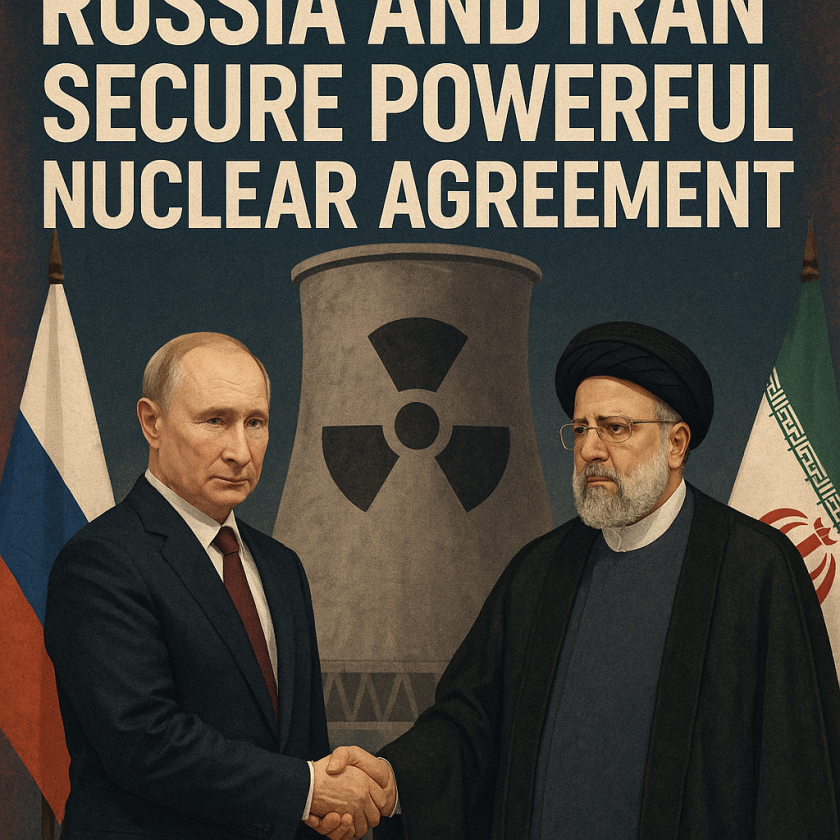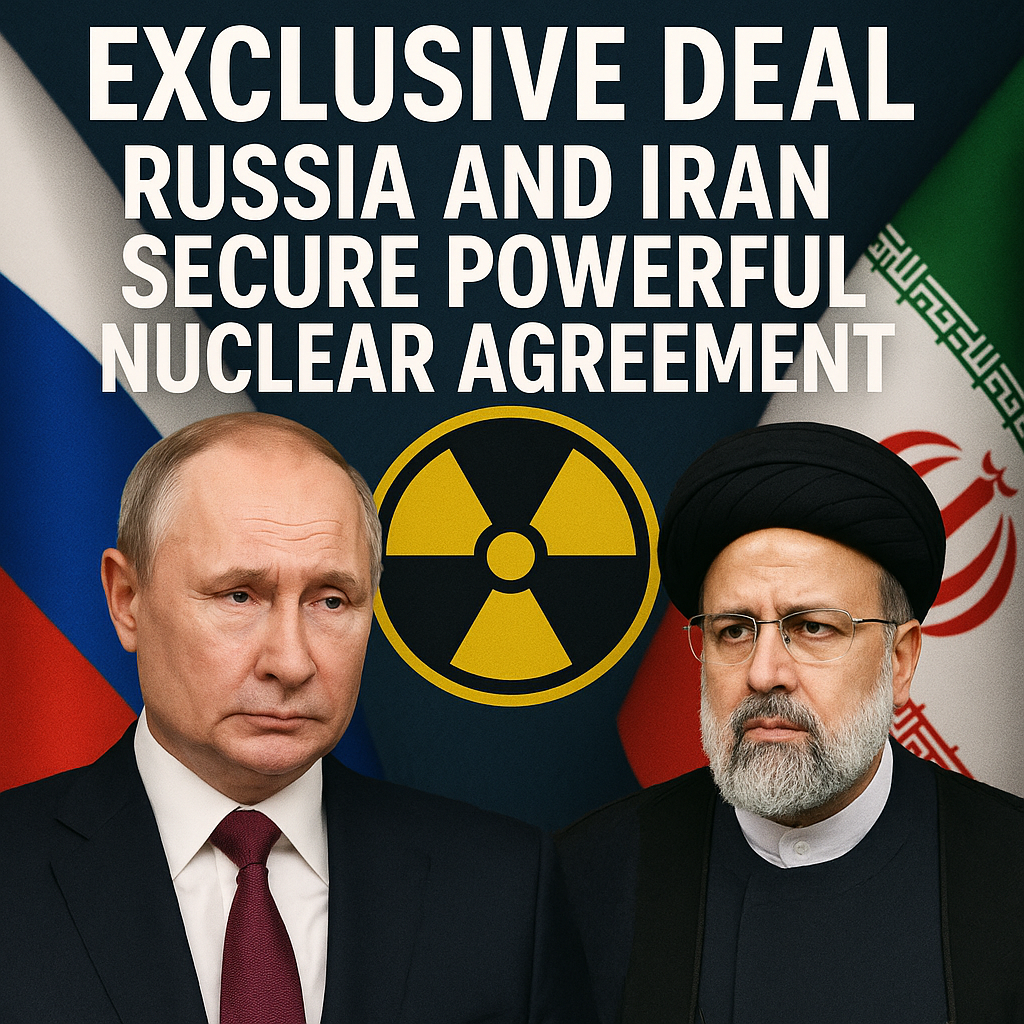Exclusive Deal: Russia and Iran Secure Powerful Nuclear Agreement
Exclusive Deal: Russia and Iran Secure Powerful Nuclear Agreement
The recent nuclear agreement between Russia and Iran signifies a crucial partnership that could reshape geopolitical dynamics and energy supply chains. This exclusive deal comes at a time when both nations face significant Western sanctions, prompting them to seek mutual support and collaboration.
Understanding the Nuclear Agreement

At the heart of this new accord is the cooperation on nuclear power plants, as reported by Al Jazeera. The deal involves the construction of additional nuclear reactors in Iran, which is expected to bolster its energy infrastructure. Given Iran’s persistent energy demands, this agreement could provide a vital lifeline for the nation, especially amid increasing isolation due to sanctions.
This collaboration is not merely a transactional arrangement; it reflects a deeper strategic alliance as both countries navigate their respective international challenges. According to various analyses, this partnership could potentially shift regional power balances and increase their influence in the Middle East.
Nuclear Technology: A Double-Edged Sword
While the agreement presents opportunities for energy development, it also raises significant concerns regarding nuclear proliferation. Critics argue that enhancing Iran’s nuclear capabilities could lead to increased tensions in an already volatile region. RT.com emphasizes that the potential for military applications of nuclear technology remains a pressing issue, highlighting fears among Western nations that this deal might enable Iran to develop a nuclear weapons program rather than solely focusing on peaceful energy generation.
Moreover, experts note that if Iran’s nuclear program is allowed to expand further without stringent oversight, it could undermine the integrity of global non-proliferation efforts. As states like the United States and members of Europe are increasingly wary of Iran’s nuclear ambitions, the agreement could provoke a backlash that might entail more stringent sanctions or heightened military presence in the Gulf region.
A New Geopolitical Landscape
The implications of this agreement extend beyond Tehran and Moscow. As both countries strengthen their ties, it invites scrutiny from the international community, which fears an alliance that could challenge U.S. interests globally. Some analysts suggest that this partnership could be seen as a counterweight to Western influence, promoting a new bloc that prioritizes economic and military cooperation over diplomatic relations with the West.
Furthermore, the deal highlights a significant shift in the world order. As Western nations impose sanctions, countries like Russia and Iran are reshaping their alliances to counteract the isolation. Sky News reports that while the U.S. and European nations may threaten further economic penalties, the growing relationship between Tehran and Moscow suggests that both countries are prepared to withstand external pressures.
Diverging Perspectives
It is essential to note that opinions on this agreement are mixed. Supporters argue that the deal allows Iran to develop its civilian nuclear infrastructure responsibly, potentially shifting its energy dependency away from fossil fuels, which aligns with global sustainability goals. Conversely, detractors posit that any advancement in Iran’s nuclear capabilities poses inherent risks, undermining international stability.
Some commentators acknowledge that this partnership could provide technological benefits for Iran, allowing it to enhance its energy output and economy. However, they caution that the risks associated with increased nuclear capacity cannot be overlooked.
Conclusion: Implications for the Future
The exclusive nuclear agreement between Russia and Iran represents a complex intersection of energy needs, geopolitical strategy, and international security concerns. As both nations leverage their partnership against Western sanctions, the global community must remain vigilant. The stakes are high, as the deal could not only influence regional stability but also reshape global nuclear policies.
While the collaborative benefits of this agreement could enhance energy production and economic resilience for both nations, the potential for escalation in military contexts and the advancement of nuclear capabilities raises profound ethical and security dilemmas. Ultimately, the consequences of this alliance will unfold over time, requiring a balanced approach from all parties involved to ensure that global stability is maintained.




































